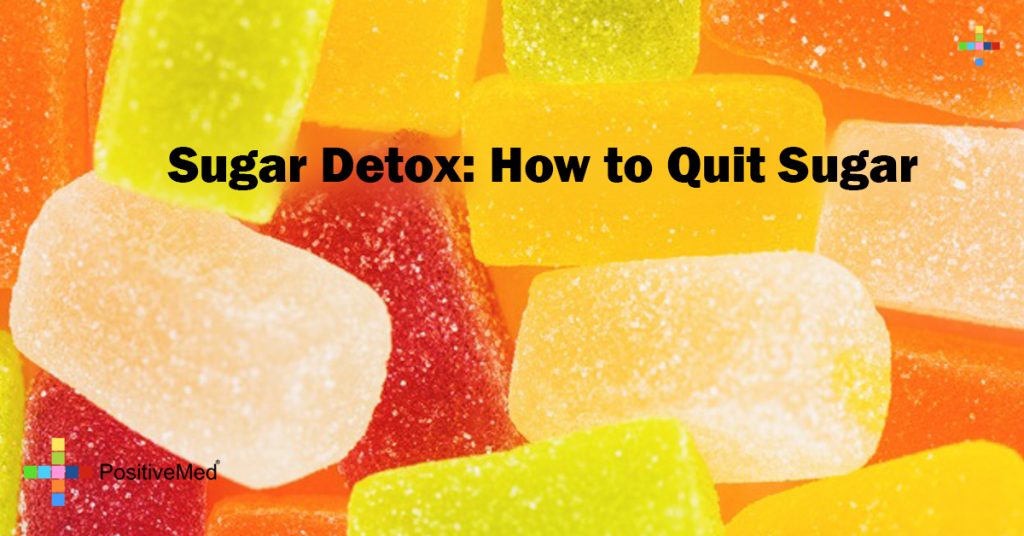
Sugar Detox: How to Quit Sugar for Good
Kick the sugar addiction for good! We think it’s the perfect time todo sugar detox and get rid of that pesky sugar habit. The holidays are over, the day of LOVE is done (mind you, every day is a good day to love yourself and others), and the focus now is most likely on getting in shape for summer! If you want to look and feel great this summer, now is the time to start. Don’t know where to start? No worries! We are here to save the day and to conquer those sugar mood swings!

First of all, why is sugar not that great? When a person consumes excess sugar, the body can’t use it and it is then turned into fat by the body. Sugar can cause hormonal changes and mood swings. New studies show that excess sugar causes aging of the skin. Plus, as we know, sugar is addictive. The more you eat it the more you want it. Sugar is known to creep in places where you may not expect. Canned foods, boxed products, and processed foods are often loaded with hidden sugars. The good news is that the longer sugar is out of your system, the less you will crave. Ideally, what you want to do is be in a place where your sugar fix comes from a fresh piece of fruit.

“No really, why should I lessen my intake of sugar?” you may be wondering. Here are four good reasons why:
1- High Blood Pressure – Normal nitric oxide levels keep blood vessels healthy and open. Too much sugar in your diet decreases nitric oxide levels, causing blood vessels to become narrow, which causes high blood pressure and an increased risk for cardiac disease.
2- High Cholesterol – People who consume too much sugar are more likely to have lower levels of HDL, or good cholesterol, higher levels of LDL, or bad cholesterol, and higher levels of triglycerides, or blood fats. This clogs up arteries and blood vessels, leading to heart disease.
3- Liver Disease – A diet high in sugar is believed to exacerbate fatty liver disease. Too much sugar spikes insulin and drives fat into the liver cells, which causes inflammation and scarring, eventually causing the liver to become cirrhotic.
4- Insulin Resistance – When sugar enters the body, insulin opens the door to allow sugar into the cells. However, when there are continuous sugar spikes, insulin becomes less effective. Sugar can’t get into the cells and become “stuck” in the body, producing toxic effects that lead to obesity and the threat of diabetes.
- The body uses sugar in the form of glucose, obtained from carbohydrates, as a cellular energy source. Protein and fat provide fuel in the form of glucose as well, but take longer to metabolize. When one consumes items like whole grains, vegetables or legumes and pulses, the carbohydrates can break down slowly while the body works to release the glucose slowly into the bloodstream. The aforementioned foods contain an abundance of vitamins and minerals that cells can use during the conversion process.
- Start by eliminating all sodas, fruit drinks that aren’t 100% juice, desserts, processed foods, candy, and condiments from your diet. Check food labels carefully. You want to avoid anything containing white or brown sugar, raw sugar, fructose, maltose, sorbitol, evaporated cane juice, xylitol, corn syrup, and barley malt. This is easy to do on your own, but if you need additional help, there any number of books and sugar detox programs on the market.
- Try to eat 3-4 ounces of lean protein with every meal. This will help stabilize your blood sugar and prevent cravings. Otherwise, indulge in complex carbohydrates, including fresh fruits and vegetables and whole grains like brown rice and legumes. Unsweetened plain yogurt with a little fresh fruit or honey is a great treat, and making your own salad dressing couldn’t be easier – just throw 2/3 cup olive oil and 1/3 cup vinegar into an old jam jar and shake!
- Eliminating sugar from your diet, especially if you’ve been eating a lot of it, is hard at first. You might feel tired, almost like you’re fighting the flu, and experience headaches. These symptoms should pass after the first couple of days as your body adjusts to your new regime. If, however, you feel shaky, it could be a sign of insulin resistance or hypoglycemia, so make sure to eat enough protein and stick to low glycemic foods, which includes most fruits and vegetables.
- Remember to drink 3 liters of water spread out throughout each day. If you need an energy boost, drink some tea! Green tea has some caffeine to help you through the afternoon slump but also contains some mighty antioxidants. Craving a sugary cocktail drink? Try this simple replacement: in a blender, combine one freshly squeezed lemon, 2 Tablespoons grated ginger, and 1 Tablespoon stevia. Blend until smooth. Pour into a glass and top with sparkling water.

If you do these few things, the benefits will kick in after the initial craving stage. For starters, you’ll lose weight. You’ll have more energy and focus, feel less moody and achy, and you’ll sleep better. Your LDL or bad cholesterol will go down, and you’ll look less puffy. If you suffer from any kind of skin condition such as acne, psoriasis, eczema or seborrheic dermatitis, your symptoms will either disappear completely or be greatly reduced.
Suggested Grocery List
Proteins:
– Eggs
– Lean Chicken Breast
– Salmon
Carbohydrates:
– Steel-cut Oatmeal
– Sweet Potato
Fruits and Veggies:
– Frozen Mixed Berries or Blueberries
– Spinach
– Lettuce
– Tomatoes
– Asparagus
– Zucchini
– Peppers
– Apples
– Cucumbers
Condiments/Good Fats:
– Natural Peanut Butter
– Hummus
– Almonds
– Balsamic Vinegar (to top salad, chicken, or veggies)
– Ground Flax (tops salad or oatmeal)
– Stevia (sprinkle a little on top of your pancake or berries)
– Mustard
– Lemons
– Fresh ginger
– Olive Oil
Sugar Detox: How to Quit Sugar for Good
[Last Updated on June 6th 2014]





